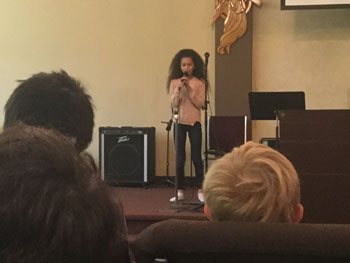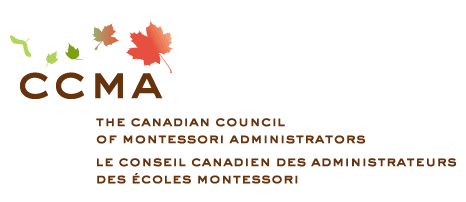Eight Principles of Montessori Education
1) Movement and cognition are closely entwined, and movement enhances thinking and learning. One of the greatest mistakes of our day is to think of movement by itself, as something apart from the higher functions. Mental development must be connected with movement and be dependent on it. It is vital that educational theory and practice should become informed by this idea.
2) Learning and well-being improve when we have a sense of choice and control over our lives. These children have free choice all day long. Life is based on choice, so they learn to make their own decisions. They must decide and choose for themselves all the time. They cannot learn through obedience to the commands of another.
3) We learn best when we are interested in what we are learning. The secret of success in education is found to lie in the right use of imagination, in awakening interest, and in the stimulation of seeds of interest already sown.
4) Extrinsic rewards reduce motivation and diminish the level of performance when those rewards are removed, thus are best avoided. The prize and the punishment are incentives towards unnatural and forced effort, and therefore we certainly cannot speak of the natural development of the child in connection with them.
5) Children can learn very well from and with their peers. Montessori schools show that children of different ages help one another. The younger ones see what the older ones are doing and ask for explanations. These are readily given, and the instruction is really valuable, for the mind of a five year old is so much nearer than ours to the mind of a child of three. The older ones are happy to be able to teach what they know. There are no inferiority complexes, but everyone achieves a healthy normality through the mutual exchange.
6) We learn best when learning takes place in meaningful contexts. Education, as today conceived, is something separated both from biological and social life. All who enter the educational world tend to be cut off from society. People are prepared for life by exclusion from it.
7) Particular forms of adult/child interaction are associated with more optimal child outcomes. It is true that the child develops in his environment through activity itself, but he needs material means, guidance and an indispensable understanding. It is the adult who provides these necessities. If the adult does less than is necessary, the child cannot act meaningfully and if he does more than is necessary, he imposes himself upon the child, extinguishing the child's creative impulses.
8) Children thrive on order, ritual and routine. The children in Montessori schools are free, but that does not mean there is no organization. Organization, in fact, is necessary, if the children are to be free to work. It is the organization of the work which leads to the establishment of mental order.
Objectives of a Montessori Education
What do we strive to develop in our children?
- Independent thinking
- Creative thinking and a healthy curiosity
- A positive attitude toward learning
- High self-esteem
- Great confidence
- Initiative
- Persistence and good concentration
- Inner discipline
- Courtesy, thoughtfulness and kindness
As you can see, we are dedicated to helping your child develop into a complete person. We don't just concentrate on the academics. That comes naturally for most children in a Montessori environment. We work on those all-important social skills, on the development of emotional strength and we work to help your child develop a strong body that will allow him to enjoy a life of physical activity and good health.
The Prepared Environment
Maria Montessori understood that young children can function very successfully in what she called the prepared environment. Every morning your child will arrive at school knowing that her classroom will be ready for her. Her favourite work will be waiting for her. She can start the day ready to accomplish great things!
The Casa dei Bambini, or the Children's House (We call it CASA.) should be ready for the children every day, creating a community which is structurally child-sized and ordered so that it can allow your child to unconsciously begin to organize both her mind and her body. It should be a safe and inviting room that allows your child to have a great deal of freedom. It is through learning to make good decisions within this environment that your child's sense of self-esteem and confidence will begin to grow.
There are many misconceptions about the Montessori method. Some say that the classroom is too structured. Others say there is not enough structure. The truth is that the Montessori classroom is a structured environment within which the children enjoy a great deal of freedom.
The teacher's role is not so much that of a traditional teacher, but more like a director/directress who can help children move with purpose and joy through the various stages of our curriculum. Her job is to stand back as much as possible and allow your child to make great decisions and great progress. Her mandate is to watch ever so carefully and, as soon as your child is ready, present yet another new concept. Her task is to ensure that your child is never pushed too quickly (with the result that his day becomes unpleasant and he learns that school is drudgery) or forced to mark time while the other children catch up (resulting in boredom, and the knowledge that school is no fun).
At Headwater Hills Montessori School, each trained teacher can have at least twelve children at her table. You might wonder how one teacher can look after twelve or more children who are at different levels of achievement. This is the beauty of a Montessori classroom!
Each child has individual attention from the teacher every day, but only when they need that attention. Much of the time, the children are working independently and with great concentration, be it with a pouring activity or working with fractions. There is a great deal of activity in a good classroom. It is seldom quiet and still. It has a feeling of purpose, energy and motion. It is alive.
Parenting a Montessori Child
Our students live in two places during their early years; at home and at school. It is always easier for the children when the expectations are similar in both environments. It is always best if we can work together. When you have questions or concerns, please come and ask. We want to be of help and we are happy to offer support whenever we can.
Here are some important things to keep in mind if you would like to parent in a ‘Montessori’ way.
- Show your love and caring by acting in a calm and respectful manner. Expect the same from your child.
- Establish some rules that must be followed.
- Observe and try not to always direct.
- Allow your child to fail, and to learn from his failures. At this age his failures are small and inconsequential. It’s a great time to learn about the concept of consequences. This is an integral part of growing and maturing. We tend to shield them from failure, and we shouldn’t. We all learn from our mistakes. Allow your child to learn from his.
- Discipline (consistent and fair) is good and necessary. Punishment is something to be used rarely and with great care.
- Be very clear in your directives and give your child clear choices.
- Try never to compare your child to other children.
- Organized activities are wonderful if there are also opportunities for free play. Children learn different skills when they play without adult interference.
Leaving your child for the first time
It can be very difficult to drop your child off on the first day of school. In fact, it is far more difficult for the parent than it is for the child! Please remember the following:
Children who are dropped off, with a very quick hug and a loving, confident "I'll see you later" will suffer far less than the child whose parents stay, with worried looks and anxious body language.
Please understand that your child may cry when first dropped off at school. It is normal and natural, especially if there hasn't been much opportunity for them to learn they can be apart from Mom and Dad, and still be happy and safe. Also, that the crying usually lasts for about 1 minute. As soon as you leave, the child has lost their audience. There is no longer any point, so they may as well go and have some fun!
Make sure that the Principal knows, before the first day, if there's anything important the teacher should be aware of. In fact, this is something to remember throughout their school days. Recent family changes or upsets can affect your child's view of the world. Sometimes we just need to know that an extra hug may be in order that day.
Prepare your child for school using positive statements and emphasizing the fact that there will be new friends and fun activities.
Don't pretend that everything will be perfect. That wouldn't be honest. Your child should understand that he/she may feel sad but should also understand that it's OK to feel sad. You can mention that you'll miss them and that you'll be so happy to pick them up and hear about their exciting day.
Make sure that both parents are on the same page about this new transition. Your child will be able to sense uncertainty, and this can cause him to be anxious and confused.
Once your child has made a successful transition to the school environment, we will welcome you to come in and observe. Ask your child's teacher to let you know when they're ready. If you come too early, your little one will be focused more on you than on his work, and your observation will only create difficulties for him. Once he's become comfortable in this new environment, you will be amazed at his confidence and happy sense of purpose.
When it comes time to leave the Montessori classroom
Parents often express concern about what comes after the years spent in a Montessori environment. They worry that our students are going to be too advanced to fit in with the regular system. They worry that the children will not have the opportunity to socialize with large numbers of children. They are sometimes concerned that our too structured or too unstructured classroom will make it hard for the children to adjust.
We have been fortunate enough to keep in touch with many of our graduating student's families. Our experience has been that the feedback is overwhelmingly positive. Children who have been in an authentic Montessori school are generally very capable of moving with ease and confidence into any other school, be it another private school, or a public school. Our students have learned how to communicate effectively with their peer group. They have wonderful problem-solving skills and seem to be excellent caretakers of both their physical and social environments. Their academic skills enable them to transition easily into their new classrooms. Their independent research skills allow them to continue excelling at their own pace and they tend to carry within themselves a sincere wish to learn.
What's next?
Keep reading to learn more about:
And when you're ready, schedule an in-person meeting with our Principal. We will be delighted to meet you, your child, and give you a tour of what our school has to offer.




